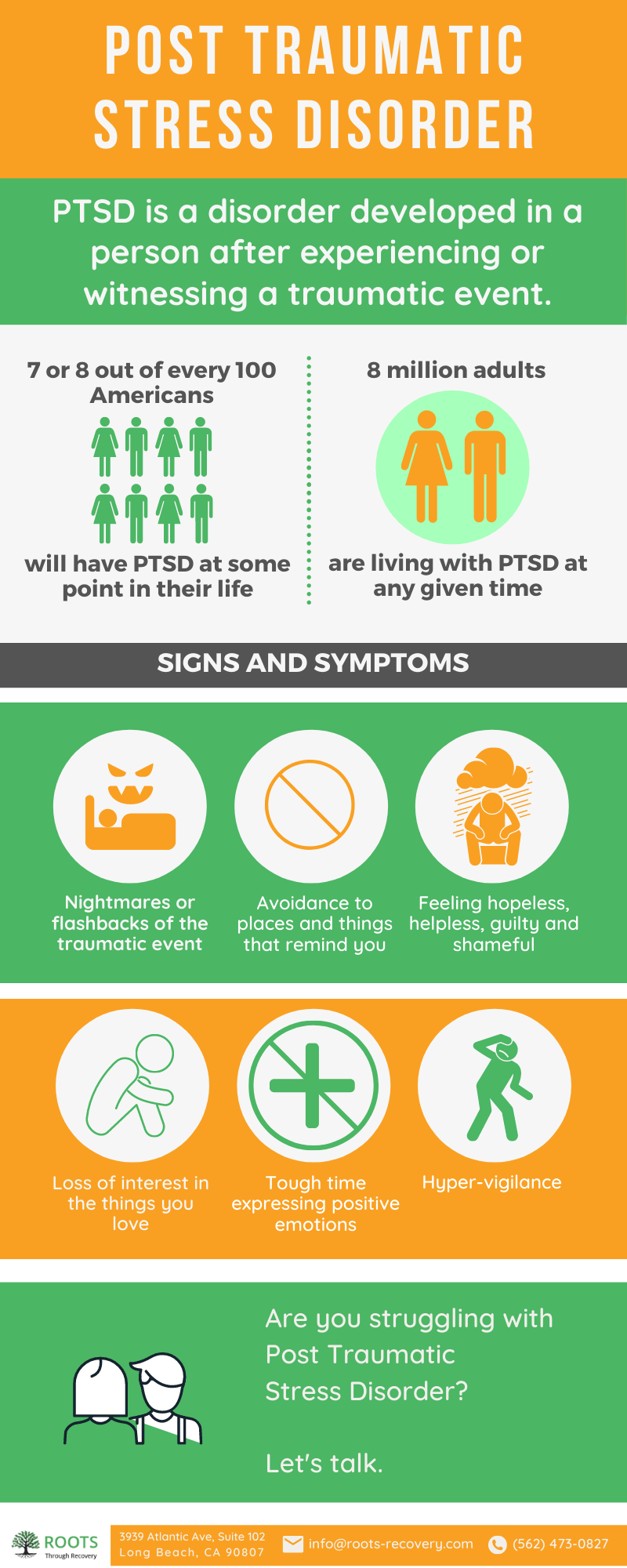
Post Traumatic Stress Disorder
Recovering from Post Traumatic Stress Disorder (PTSD) can be a lifelong process. Each situation is as unique as the person experiencing it, and while some may be able to confront their pain and suffering, others are less resilient due to no fault of their own. Trauma could be a result of adverse childhood experiences, losing a loved one, a divorce, illness, or losing a job; or it could be the result of a catastrophic event like a car accident, combat, rape, or violent crime.
If you have been experiencing intense feelings about a traumatic event, if it has lasted for weeks or months, or if there are suicidal thoughts present, please do seek help as soon as possible. Getting help will also enable you to process your thoughts easier and get you better sooner as well. Additionally, we offer a free assessment test that one can take.
What is it?
Trauma results from a profoundly distressing experience. PTSD may manifest itself within days or weeks of the trauma, but sometimes it takes years for it to be apparent. Many go on to lead normal lives, largely unaffected by the trauma they experienced, while others may be more vulnerable to the stressors.
Because of its manifestations, one may encounter the following challenges:
- Holding down a job
- Maintaining personal relationships
- Coping with social situations
What are the signs and symptoms?
Intrusive memories of the event
- Nightmares
- Flashbacks
- Extreme responses to situations that remind you of the trauma
Avoidance
- Not wanting to talk about it
- Avoiding people or places that remind you
Hopelessness
- Feeling helpless
- Having negative thoughts about others and the world
Emotional numbness
- Loss of interest in the things you love
- Tough time expressing positive emotions
Changes in physical and emotional responses to situations
- Hyper-vigilance
- Self-destructive behavior
- Irritability
- Rage
- Feelings of guilt
- Shame
FAQs
Q: How is trauma and PTSD correlated?
A: It is more or less agreed that PTSD is the product of an interaction between the intensity of the trauma and the level of the individual’s personal vulnerability. However, a serious catastrophic event, like a terrorist attack or an extreme weather event, for example, might be enough to produce PTSD in anybody who experienced it – not just the vulnerable.
Q: How come there are days when I can manage my PTSD, but sometimes I can’t?
A: The intensity of PTSD may change over time. They may increase with stress, or certain stressors, like if you are reminded of the event. For example, a car may backfire and take you right back to the combat zone. A news item about a violent crime may trigger memories of your experience.
Q: What repercussions may occur if I avoid getting help for my PTSD?
A: According to a 2012 study, avoidance can result in three effects: increase the risk of further painful experience, lose out on helpful experiences, and lead a person to experience the very thing he or she is avoiding.
Q: Why is it important that I get help?
A: Simply avoiding the issue is not the answer – in fact, research has shown that there is a strong correlation between avoidance and the development of PTSD. The sooner you can seek help, the sooner you will feel better.
Take the First Step Now
If you need to find a place that feels comfortable and supportive, let Roots Through Recovery’s experienced clinicians and case management team work with you to help determine your next steps. We want you to have choices that will give you and your loved ones the best outcomes.
